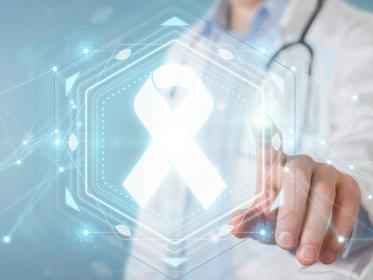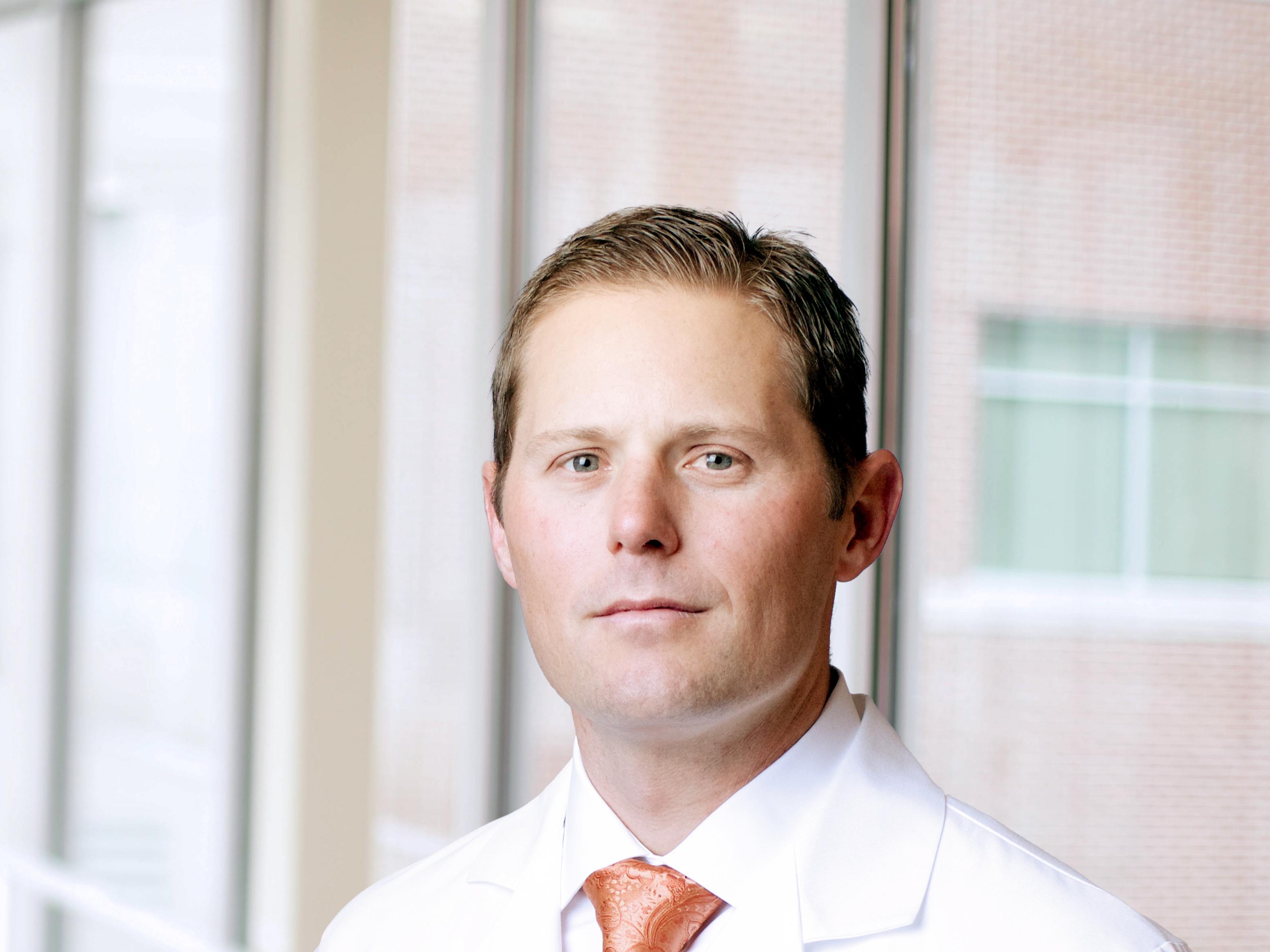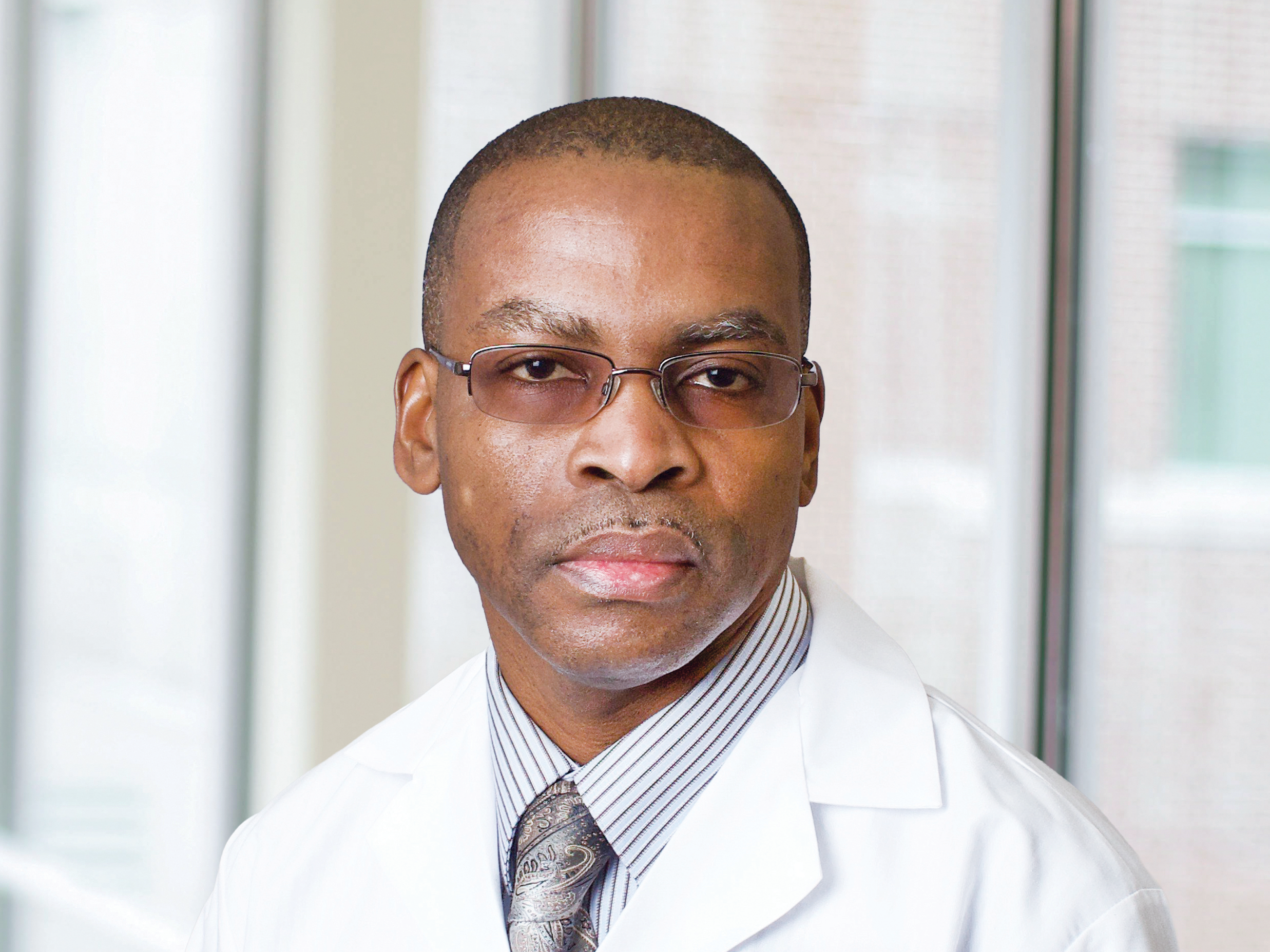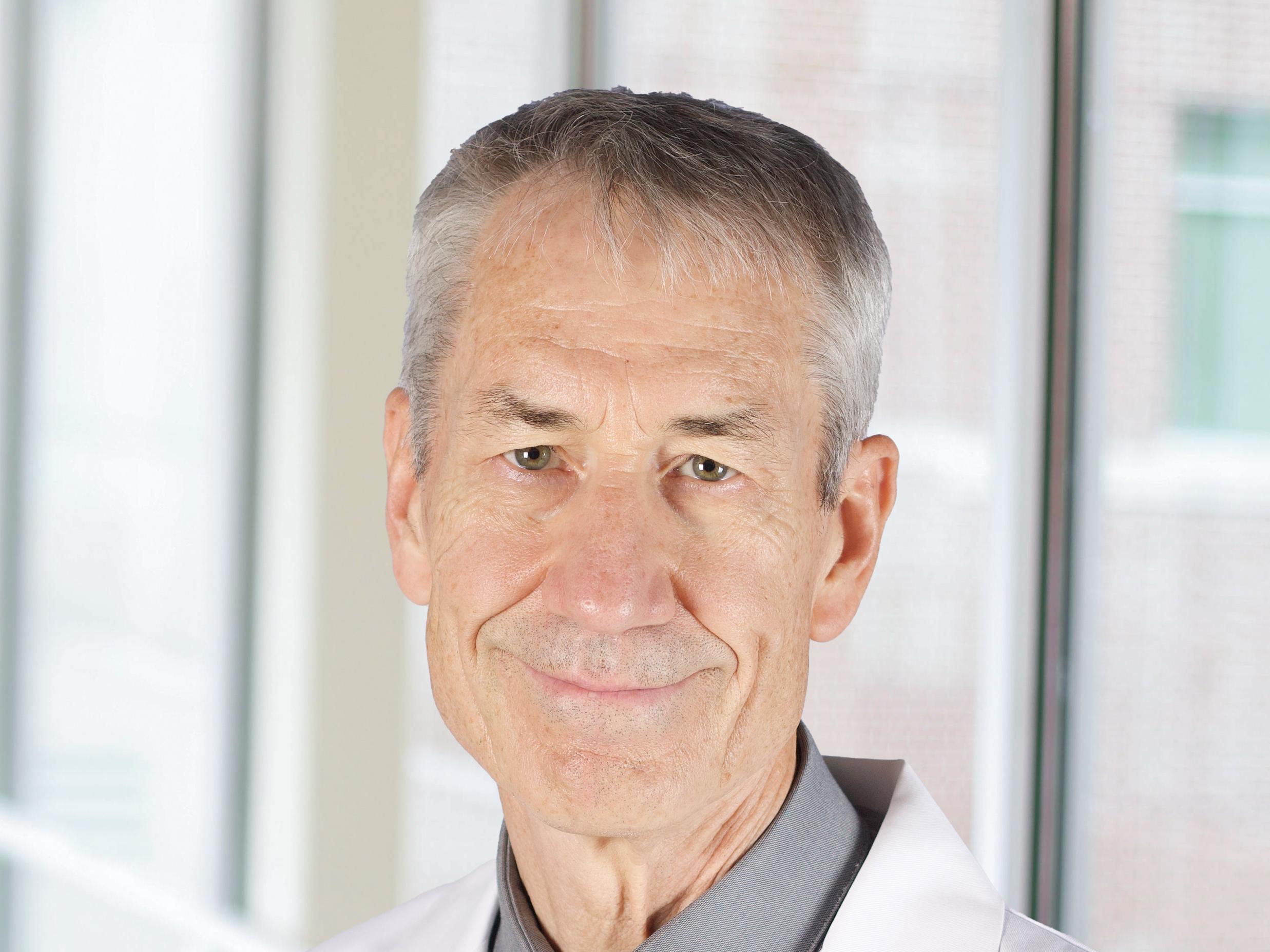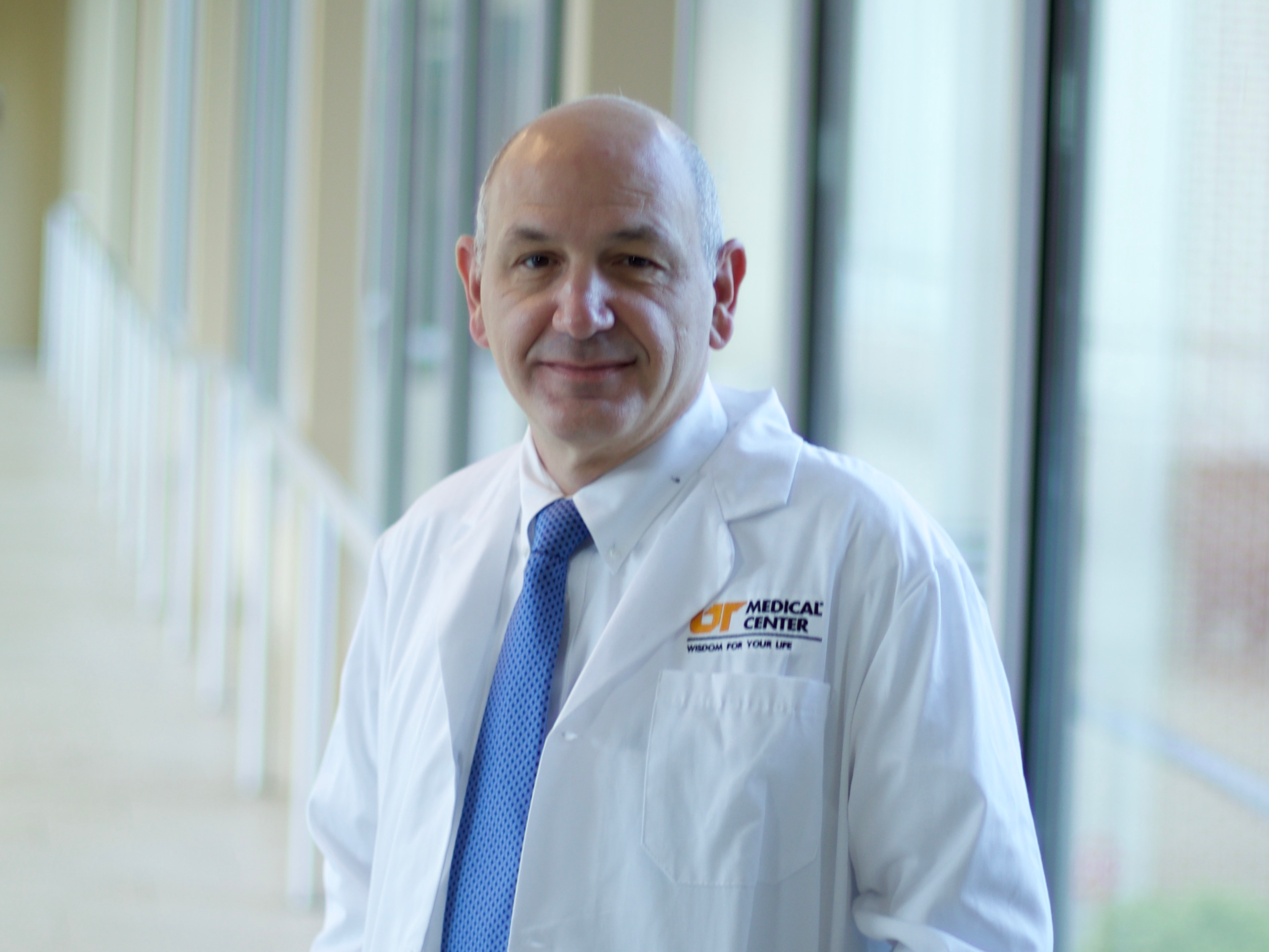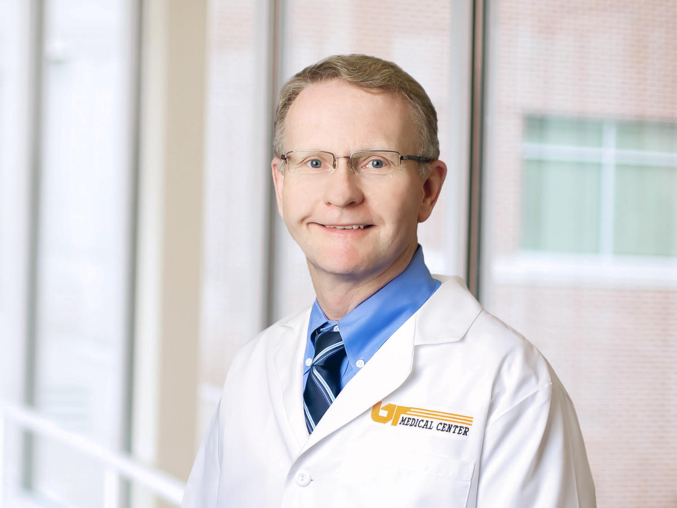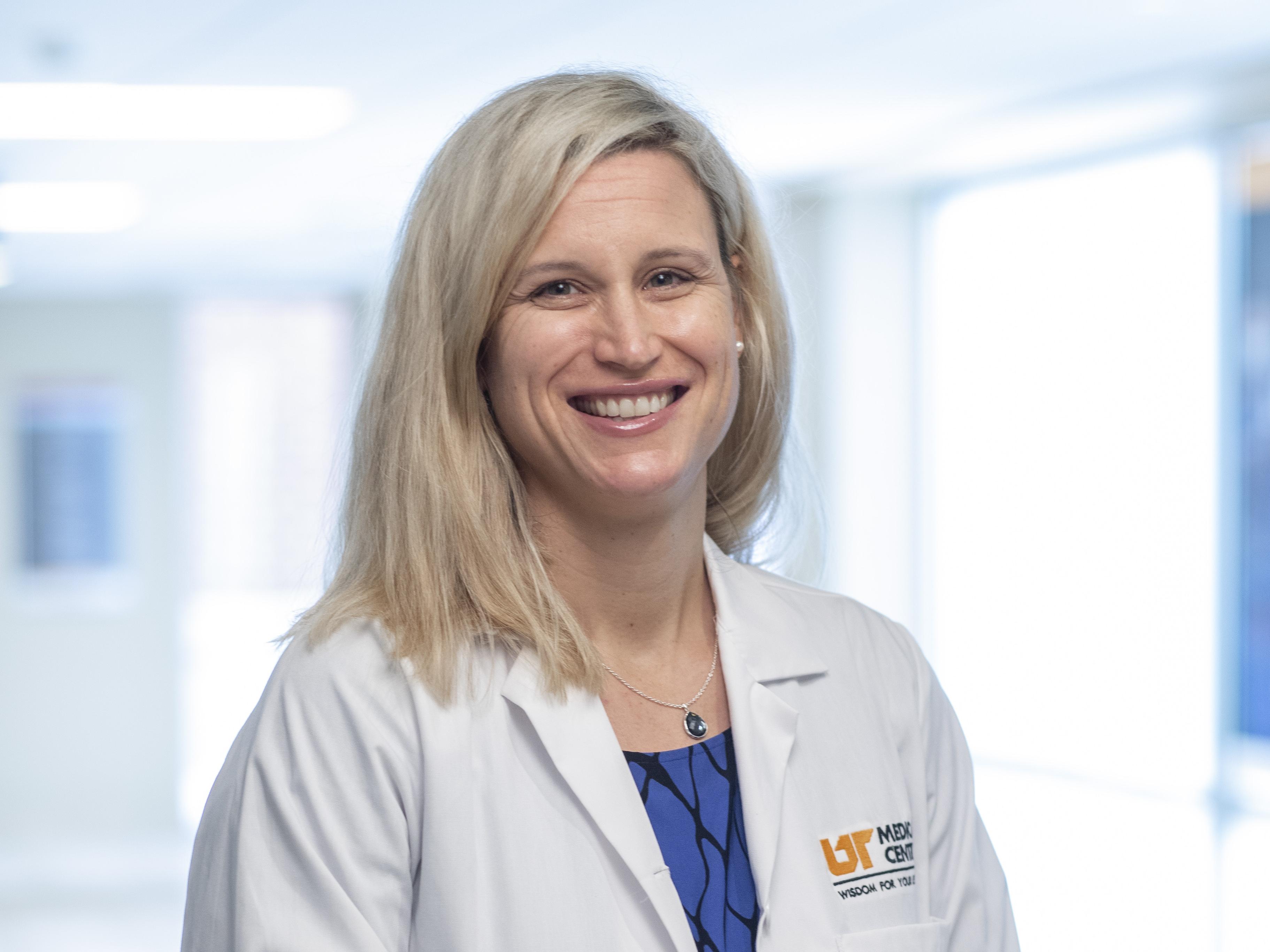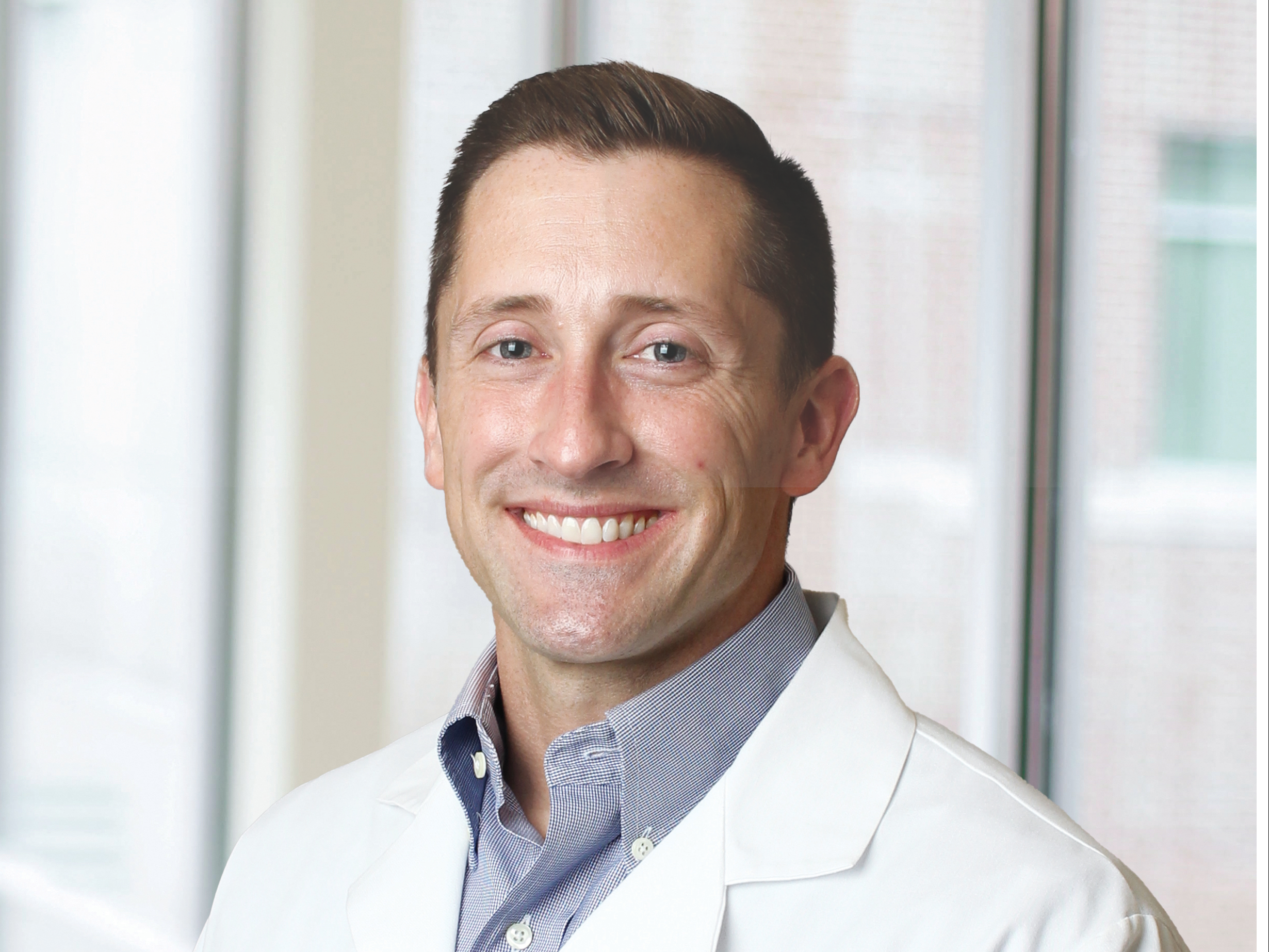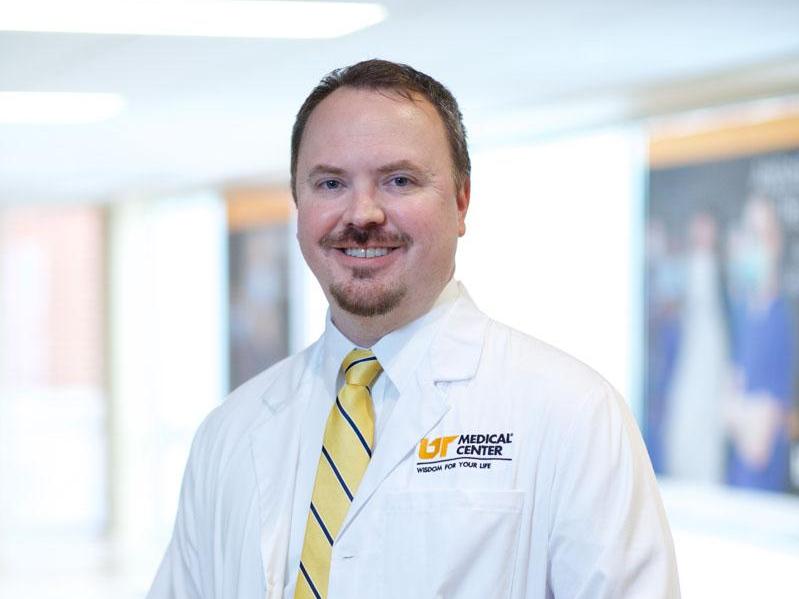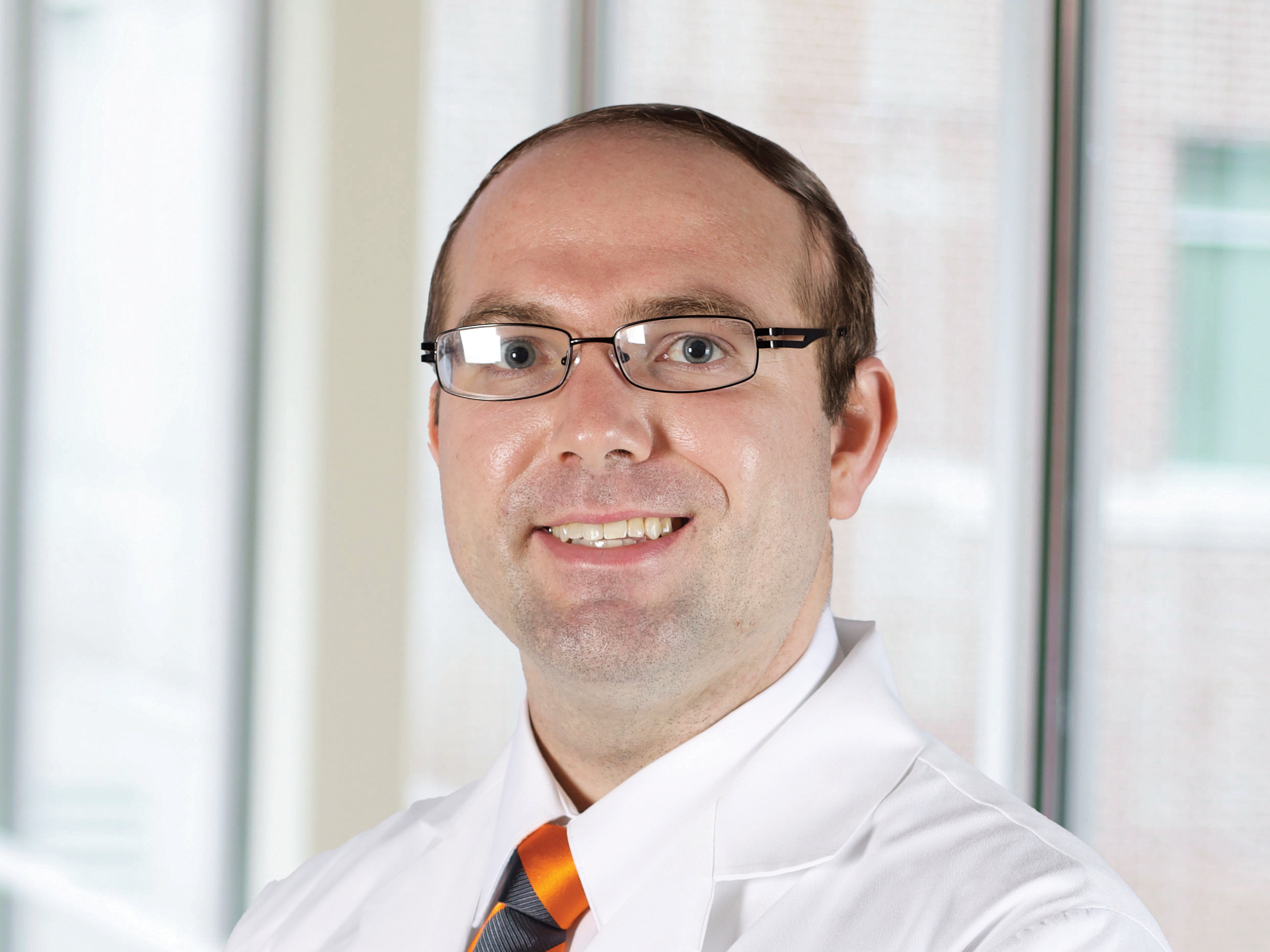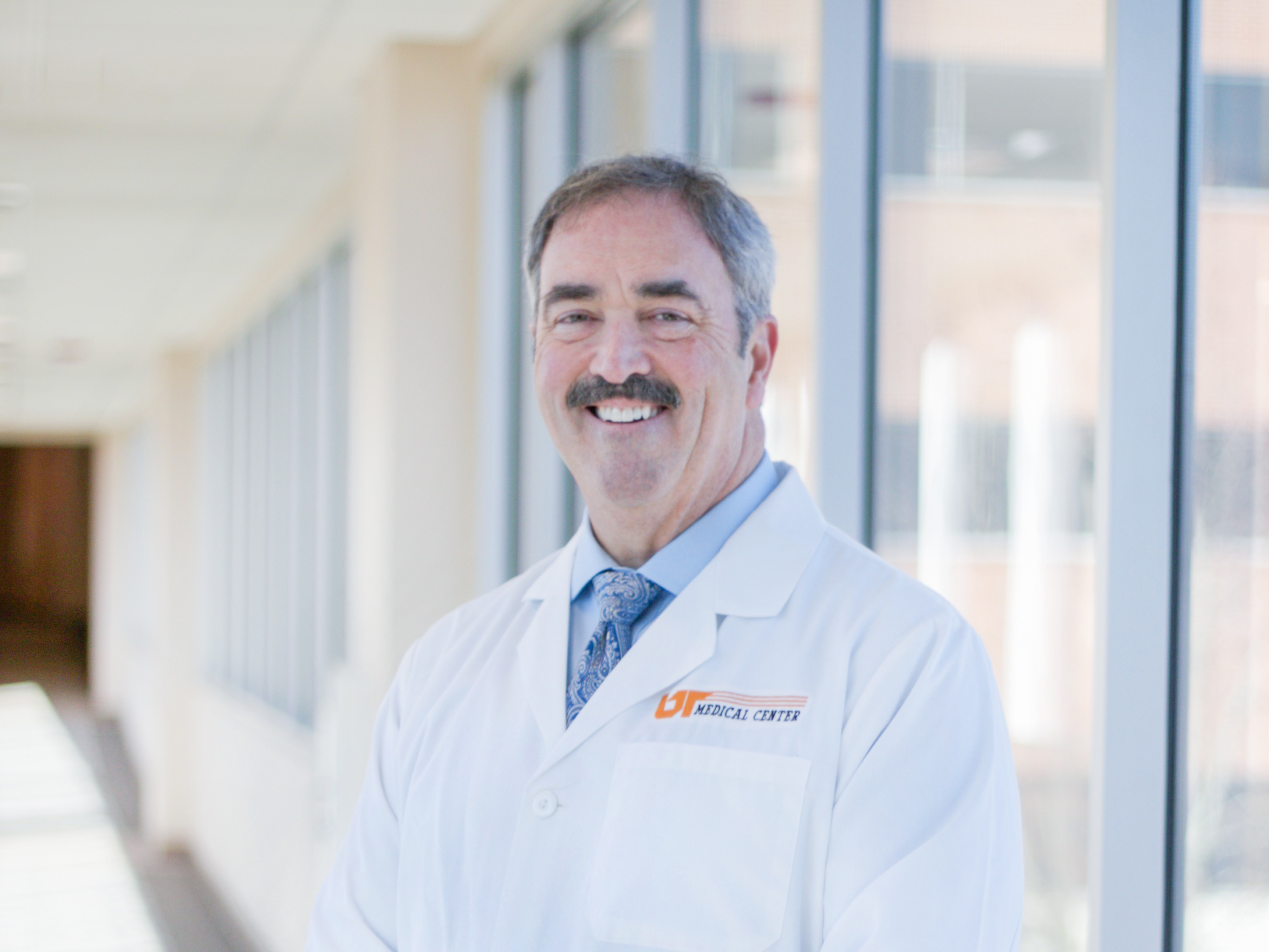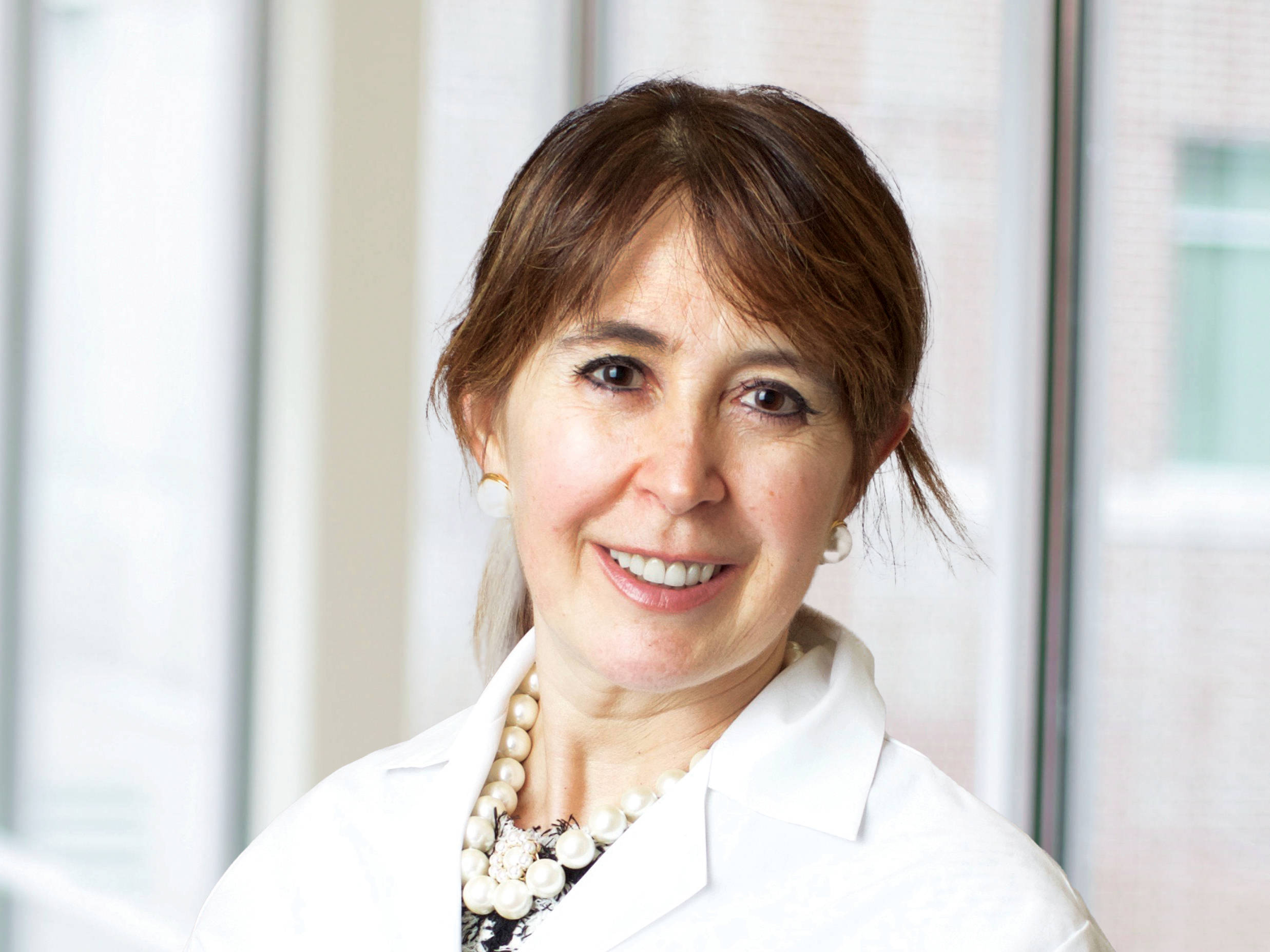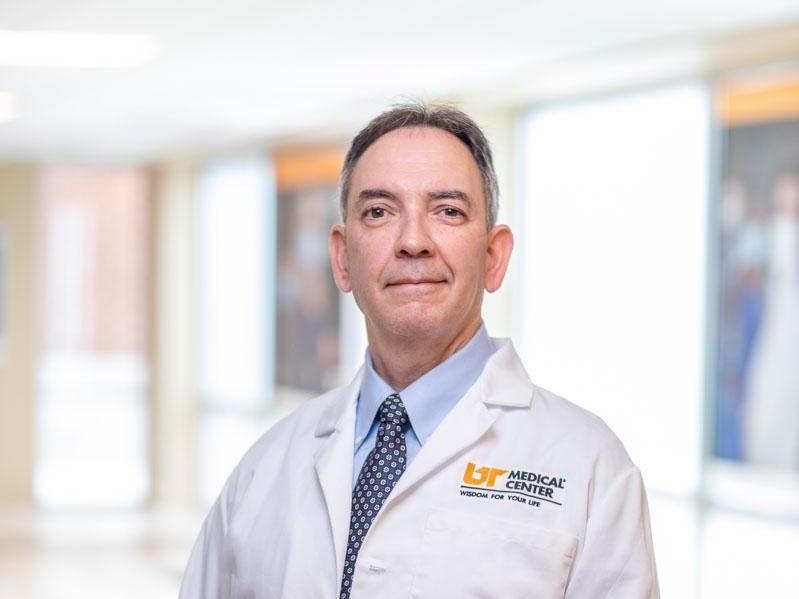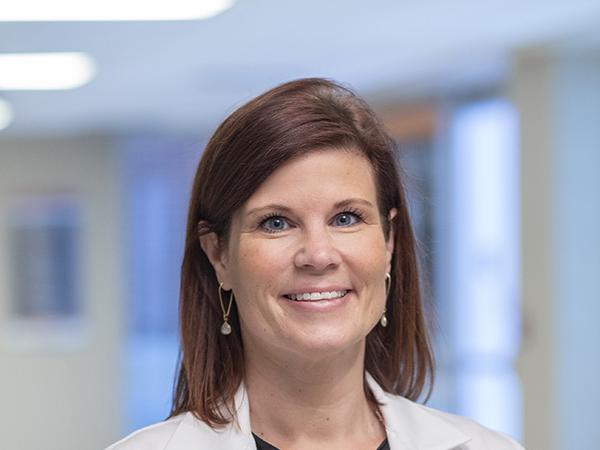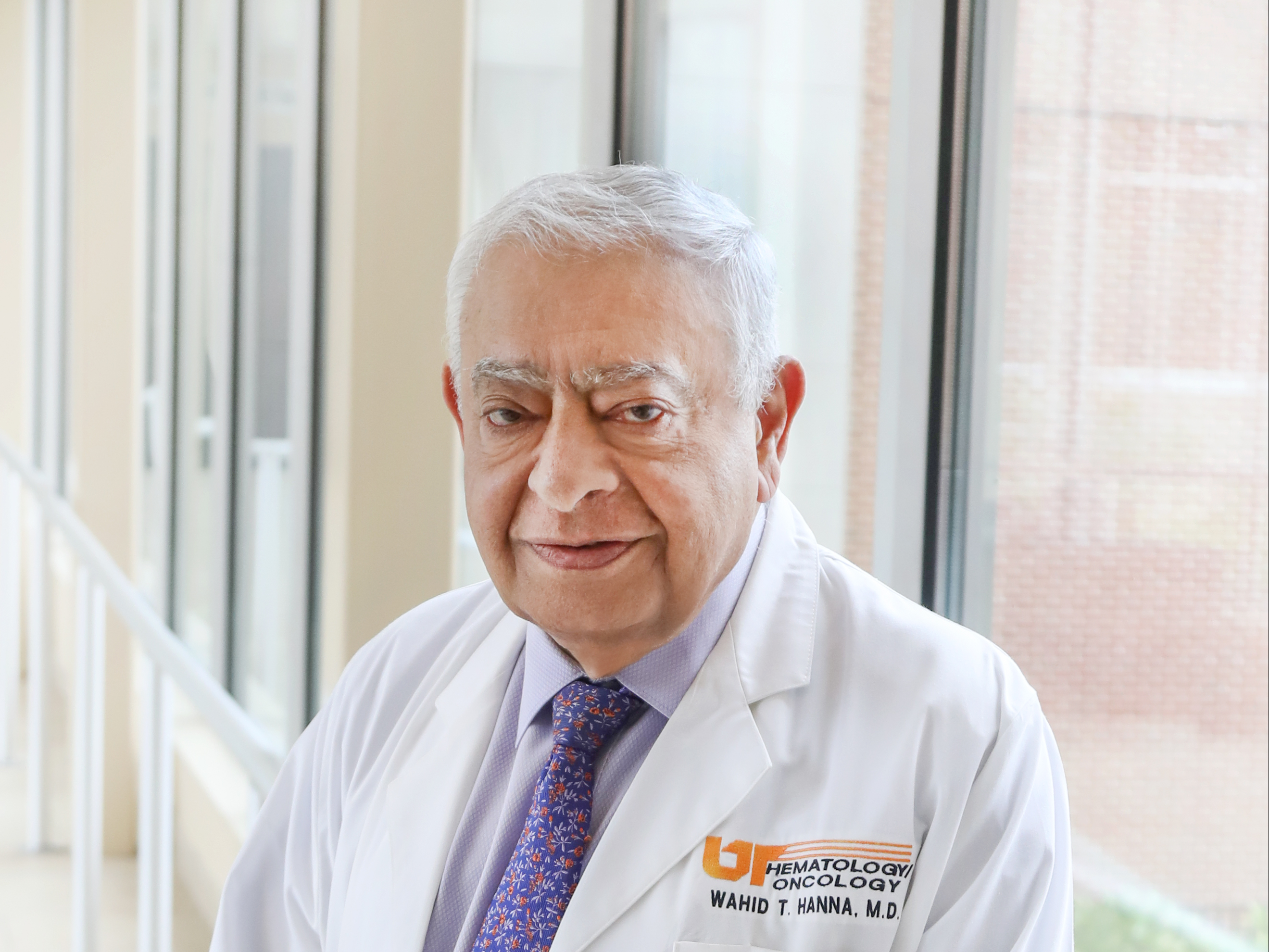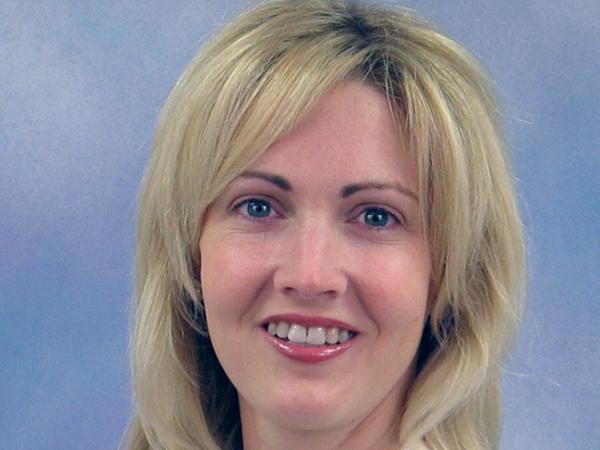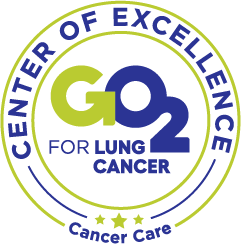Overview
Lung cancer is the deadliest type of cancer for both men and women. Each year, more people die of lung cancer than breast, colon, and prostate cancers combined. Lung cancer is responsible for an estimated 160,000 deaths in the United States annually.
The lungs are located in the chest. They help you breathe. When you breathe, air goes through your nose, down your windpipe (trachea), and into the lungs, where it spreads through tubes called bronchi. Most lung cancer begins in the cells that line these tubes.
Your Care at the Cancer Institute
The Cancer Institute at The University of Tennessee Medical Center offers the broadest spectrum of cancer specialists and services to care for our patients with lung cancer.
Our team provides patients with lung cancer access to all of their cancer care including including surgical consultations, radiation therapy, genetic counseling/testing, chemotherapy infusions, and supportive/integrative health services, all in the same building.
The Cancer Institute offers a highly trained team of oncologists, pulmonologists, and cardiothoracic surgeons trained at some of the top institutions in the country, bringing the best care to patients in our region. Our center is designed to assist and support patients through their cancer journey so they can choose the most appropriate treatment plan based on their particular diagnosis and needs. Additionally, our physicians have offices in many locations throughout East Tennessee to better serve patients with colorectal cancers.
The Thoracic Oncology Service at The University of Tennessee Medical Center provides a unique service for patients with suspected or known cancers of the lung and esophagus. As a leader in the diagnosis, evaluation, and treatment of thoracic malignancies, coordination of care between specialists is maximized to provide quality comprehensive care.
At the weekly multidisciplinary thoracic tumor conference, each patient’s case is reviewed by our team of specialists and recommendations for treatment are made and an individualized care plan developed. This level of coordination ensures that patients are receiving the highest level of care, offering the best outcomes and quality of life. Our comprehensive care teams also include integrative healthcare, a registered dietitian, financial counselors, pastoral care, palliative care, and a social worker.
The Thoracic Oncology Service nurse navigator assists with expediting and coordinating each referral while providing information and support to the patient and family.
Risk Factors
There are two main types of lung cancer:
- Non-small cell lung cancer (NSCLC) is the most common type of lung cancer.
- Small cell lung cancer makes up about 20% of all lung cancer cases. Small cell lung cancer grows more quickly and is more likely to spread to other organs in the body.
If the lung cancer is made up of both types, it is called mixed small cell/large cell cancer.
Causes of Lung Cancer
Multiple exposures to carcinogens (cancer causing agents) results in damage to DNA in the cells of the body. Tobacco smoke is the biggest carcinogen, responsible for 85 percent of all lung cancers in the United States. Risk increases with the amount of tobacco used, and the amount of time it has been used.
The more cigarettes you smoke per day and the earlier you started smoking, the greater your risk of lung cancer. There is no evidence that smoking low-tar cigarettes lowers the risk. However, lung cancer has occurred in people who have never smoked. Secondhand smoke (breathing the smoke of others) increases your risk of lung cancer. According to the American Cancer Society, an estimated 3,000 nonsmoking adults will die each year from lung cancer related to breathing secondhand smoke.
Smokers, particularly heavy smokers (a pack a day), are at the highest risk for developing lung cancer. Other risk factors include:
- Family history
- People who suffer from chronic obstructive pulmonary disease (COPD)
- Environmental and occupational exposure to certain substances, including arsenic, asbestos, ether, chromium, nickel, and radon
- Exposure to excessive radiation (wartime or industrial exposure, or radiotherapy to the chest)
- Poor diet (however, diets high in fruits and vegetables may decrease your risk)
Diagnosing Lung Cancer
Early lung cancer may not cause any symptoms. Many times, lung cancer is found when an x-ray is done for another reason. Symptoms depend on the specific type of cancer you have, but may include:
- Cough that doesn’t go away
- Coughing up blood
- Shortness of breath
- Wheezing
- Chest pain
- Loss of appetite
- Losing weight without trying
- Fatigue
Tests for Lung Cancer
Your primary care physician will listen to your chest with a stethoscope. He or she can sometimes hear fluid around the lungs, which could (but not always) suggest cancer.
Tests that may be performed include:
- Low-dose CT lung cancer screening
- Chest x-ray
- Sputum cytology test to look for cancer cells
- Blood work
- CT scan of the chest
- Chest MRI
- Lung PET scan
To confirm lung cancer, the health care provider needs to remove a piece of tissue from your lungs for examination under a microscope. This is called a biopsy. There are several ways to do this:
- Bronchoscopy combined with biopsy
- Pleural biopsy
- CT-scan-directed needle biopsy
- Mediastinoscopy with biopsy
- Open lung biopsy
Your Treatment Options
A treatment plan depends on the cell type, stage of disease, possibility for removing the tumor, and the patient’s ability to survive surgery.
Various therapies can treat lung cancer:
- Therapeutic bronchoscopy
- Tumor destruction using thermal ablation, cautery and cryotherapy
- Tracheobronchial dilation and stenting
- Chemotherapy can control cancer growth and relieve symptoms.
- Photodynamic therapy involves the use of a chemical that is injected into the bloodstream and absorbed by cells all over the body, and which remains in cancer cells for a longer time. A laser light activates the chemical, which then kills the cancer cells. Photodynamic therapy may be used to control bleeding, relieve breathing problems, or to treat very small tumors.
- CT-guided Radiofrequency Ablation
- Computer Assisted Navigational Bronchoscopy
- Molecular Tumor Analysis
- CT-guided Biopsy Consultation
- Surgery is the only treatment that offers hope of a cure of non-small cell lung cancer. Removal of a small part of the lung is a segmental or wedge resection, removal of an entire lobe of the lung is a lobectomy, and removal of an entire lung is a pneumonectomy.
- Radiation therapy is used before surgery to shrink a tumor, or after surgery to destroy remaining cancer cells. Radiation therapy may also be used instead of surgery, or it may be used to relieve symptoms such as shortness of breath.
- Complementary and alternative therapies: A comprehensive treatment plan for lung cancer may include a range of complementary and alternative therapies. Ask your team of health care providers about the best ways to incorporate these therapies into your overall treatment plan.
Periodic follow up is useful in helping to detect recurrence of the lung cancer or other smoking-related cancers. Frequent follow-up and rehabilitation for loss of lung function from cancer, surgery, or other treatment may be necessary.
Clinical Trials
Cutting-edge treatment is offered to patients along with opportunities to participate in National Cancer Institute and pharmaceutical clinical trials. Clinical trials are research studies made available to patients that offer the newest treatments and test new ways to prevent, detect, diagnose and treat diseases.
For more information, visit Clinical Trials or call 865-305-9773.
Your Next Steps
The University of Tennessee Medical Center Thoracic Oncology Service provides a unique specialty service for patients with suspected or known lung disease, including chest malignancies. Through the Thoracic Oncology Service, coordination of care between specialists is maximized to provide quality comprehensive, cost-effective care.
One phone call to the Thoracic Oncology Service from a patient or physician initiates a prompt evaluation to determine the diagnosis and appropriate intervention for diseases of the chest, including lung nodule(s) and lung cancer. Our team aims to reduce patient/family anxieties while providing timely comprehensive care.
The Thoracic Oncology Service at our hospital will work in partnership with the referring physician to develop a plan of care, including follow up. At every phase of care, a detailed summary and update is promptly sent to the referring physician.
Patient management services will guide you through your care by doing the following:
- Testing and physician consultations scheduled within one week of referral to expedite diagnosis, treatment and follow-up care.
- Comprehensive evaluation including history, physical exam, laboratory testing and diagnostic studies (radiograph, needle biopsies and other procedures as appropriate) leading to diagnosis and a plan of care.
- Therapy options provided include surgery, chemotherapy, radiation therapy or other treatments as appropriate.
- Access to National Cancer Institute-funded and industry-sponsored clinical trials.
- Smoking cessation services are offered through the Cancer Institute at 865-305-8577.
All specialists and procedures are available in one location on the campus of The University of Tennessee Medical Center.
Our Cancer Institute team is here for you in what can be a very stressful time. Please don’t hesitate to ask questions and request help when you need it. Our new patient section will provide you additional information about the Cancer Institute and everything you need to know to prepare for your first visit.
For more information on esophageal cancer, visit our External Resources page for several trusted sites to enhance your research and understanding of your diagnoses.

